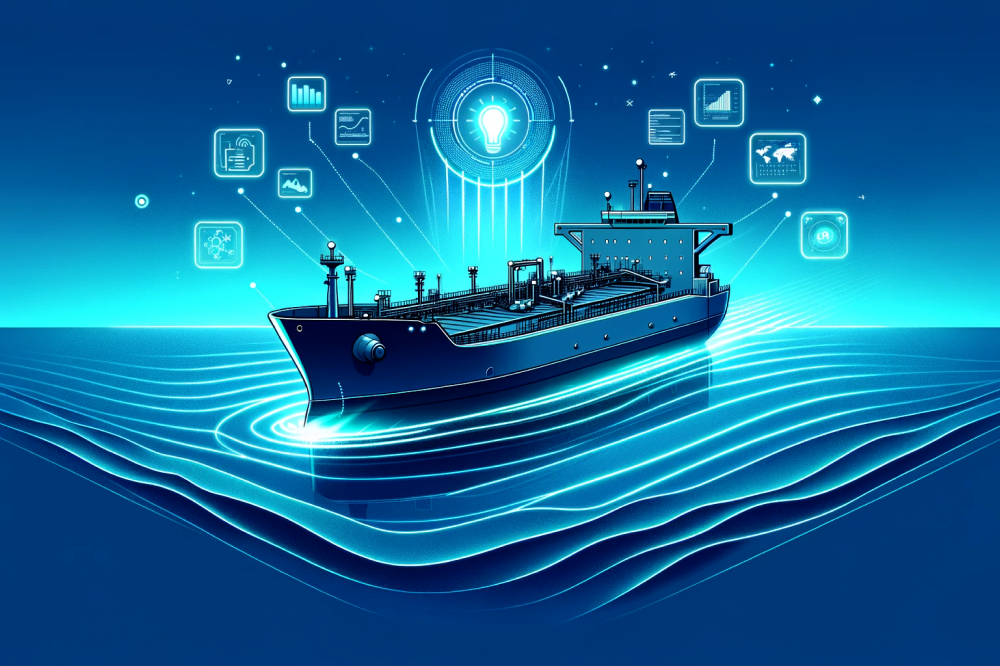
Meet Thorleif Thorleifsson - Chairman of the Board
When did you first realize you had a passion for the ocean?
There were old salts in my family. My grandfather and grandfather's brother were born in the 1890s and experienced the last days of sail as young men. They both sailed "before the mast" onboard Norwegian windjammers across the oceans of the world. When they were old, they conveyed the magic of the sea to me. I was amazed. Since then, the oceans have attracted me with their power and beauty. It is the most sublime element we can think of because of its vastness that exceeds the powers of our understanding.
You've been a part of several start-ups and innovation projects. In your opinion, what makes a tech start-up successful?
The Captain and the crew. It's about people. A brilliant idea might be spoiled by the wrong team. Crappy ideas might be reinvented into brilliant ideas by a competent, happy and committed crew! It's a social thing! Even Tech!
Then you need all the rest... Because in a start-up there is a lack of everything (time, money (and more money), structure, systems, seniority, experience etc.)
You know the industry, and you know there is a lot of talk about digitization. So why do you invest time and money in Maritime Optima?
I have worked with Kristin and Pål-Robert before. That was a thrilling, inspiring and profitable experience. I am also personally interested in technology, and especially how digitalization and digital transformation can change anachronistic processes and ways of working in businesses. Shipping might be in a similar position to finance 15 years ago. MO can be part of the "ShipTech revolution" and contribute to the creation and transformation of the business models in the shipping industry.
What do you think will be your contribution to the company and team? What do you look most forward to start working with?
Two things: A happy crew and a clear strategy.
To unite the whole range of people involved, from investors, founders, captain to the teams "on deck or in the engine rooms". I know that that sometimes is difficult. But it is possible.
A clear direction is my second contention. To align the strategies on different levels. Owner strategy/company strategy/functional strategy/product strategy... To manage that we'll have to maintain a good dialogue on these matters. Well designed strategy processes. Adapted to our reality. That means not necessarily voluminous documentation but good strategy dialogues, based on action and reflection. Like in Design Thinking.
You've been part of several expeditions. Do you use any of the things you learned there in your work with technology companies?
Absolutely. A startup is very similar to an expedition into the unknown. When out there the whole expedition might collapse if you are not aligned or have a common goal, and we need trust and professionalism to survive. We need to be skilled, know our tasks and
understand our roles to learn and to be able to improvise collectively when needed. It is the same in startups.
What do you think is the key to a successful team?
In addition to the elements I described in the previous question, I will say psychological safety and presence. That you dear to ask “stupid” questions, practice candor (share not only the good news but also the bad news immediately). Presence in the sense that we see each other as human beings, that we sense what is going on here. That we play the same song when on stage.
The maritime industry will be a part of the world's ambitions in reducing carbon emission within 2050. What do you think is the biggest challenge for the maritime industry complying with this policy? How do you think technology can make a difference in reaching this goal?
Oh, that's a good question. Digitalization and new developments in the field of artificial intelligence, blockchain, IoT and automation are becoming increasingly relevant for blue growth and maritime transport. They help streamline existing processes, create new business opportunities, and transform supply chains and trade geography. I don't think moving to a lower-carbon future is going to be a great, dramatic transformation. More like a voyage - to a future with smart shipping. More slow and chronic than disruptive and dramatic. Digital transformation is not just about disruption of technology. It's also about value, people, optimization and the capability to rapidly adapt when such is needed through an intelligent use of technologies and information. Technology might offer solutions, but also new, unpredicted problems. That will never change. But maybe people will. I think there is a new mindset emerging – among the young professionals, like you guys working in MO, and in the shipping industry as well. Mindsets that will lead us to a better understanding of how to master the technology. The Finnish Cambridge-philosopher Georg Henrik von Wright wrote brilliantly about technology and society a couple of generations ago. Still very relevant perspectives. To put it short; Technology will change all businesses, to the good and to the bad - even in the shipping industry. It's up to us to decide where we are heading.















